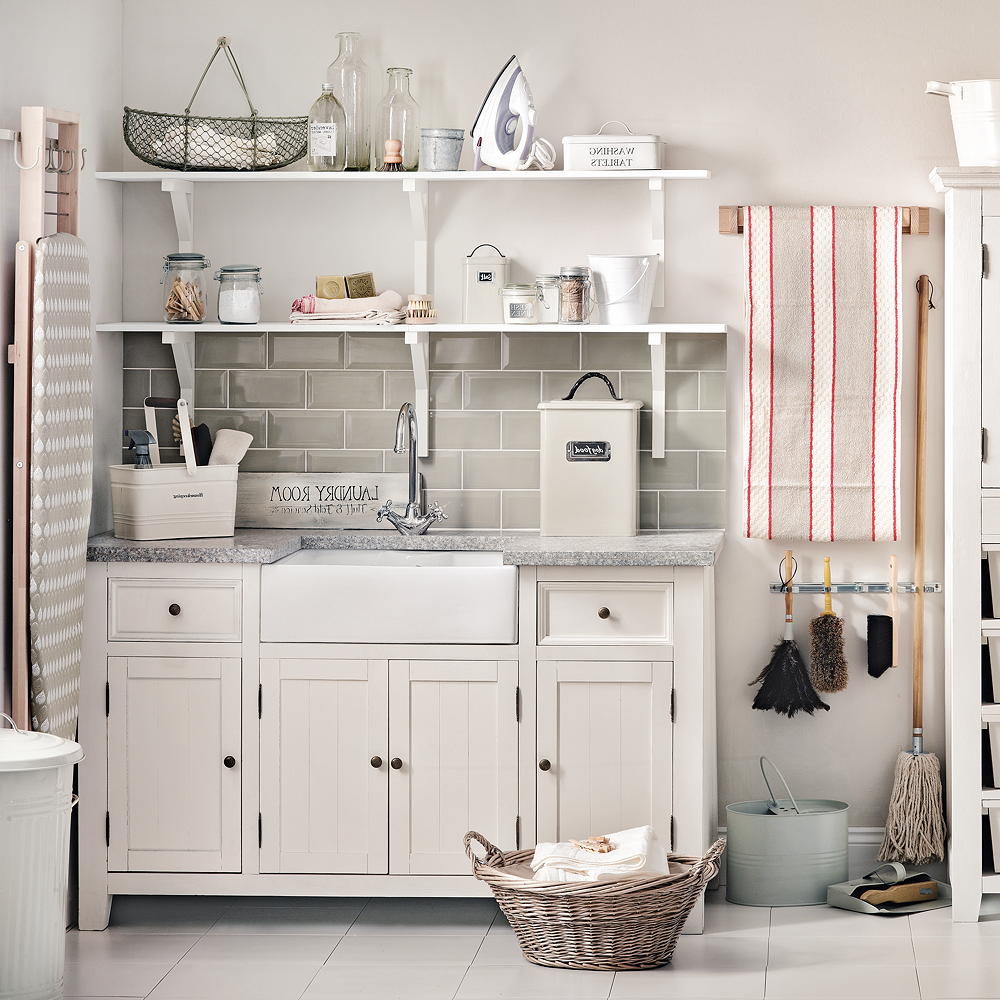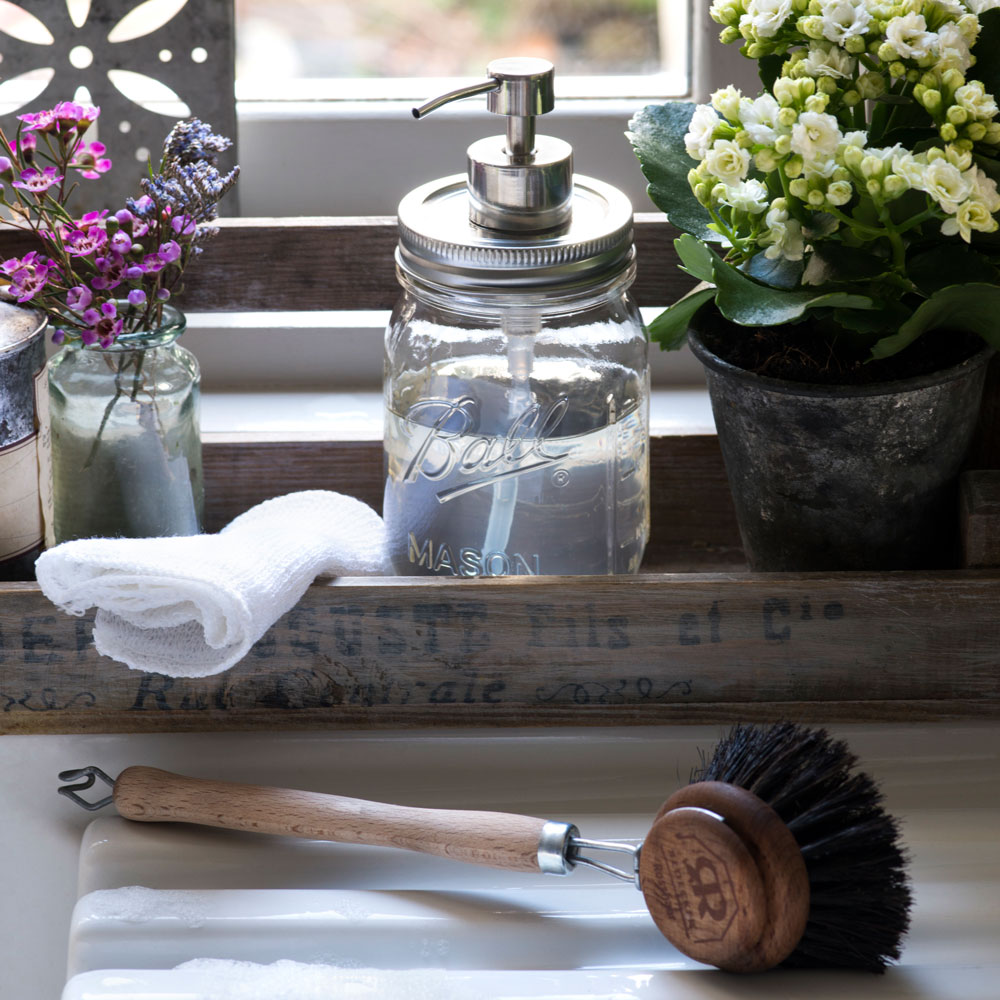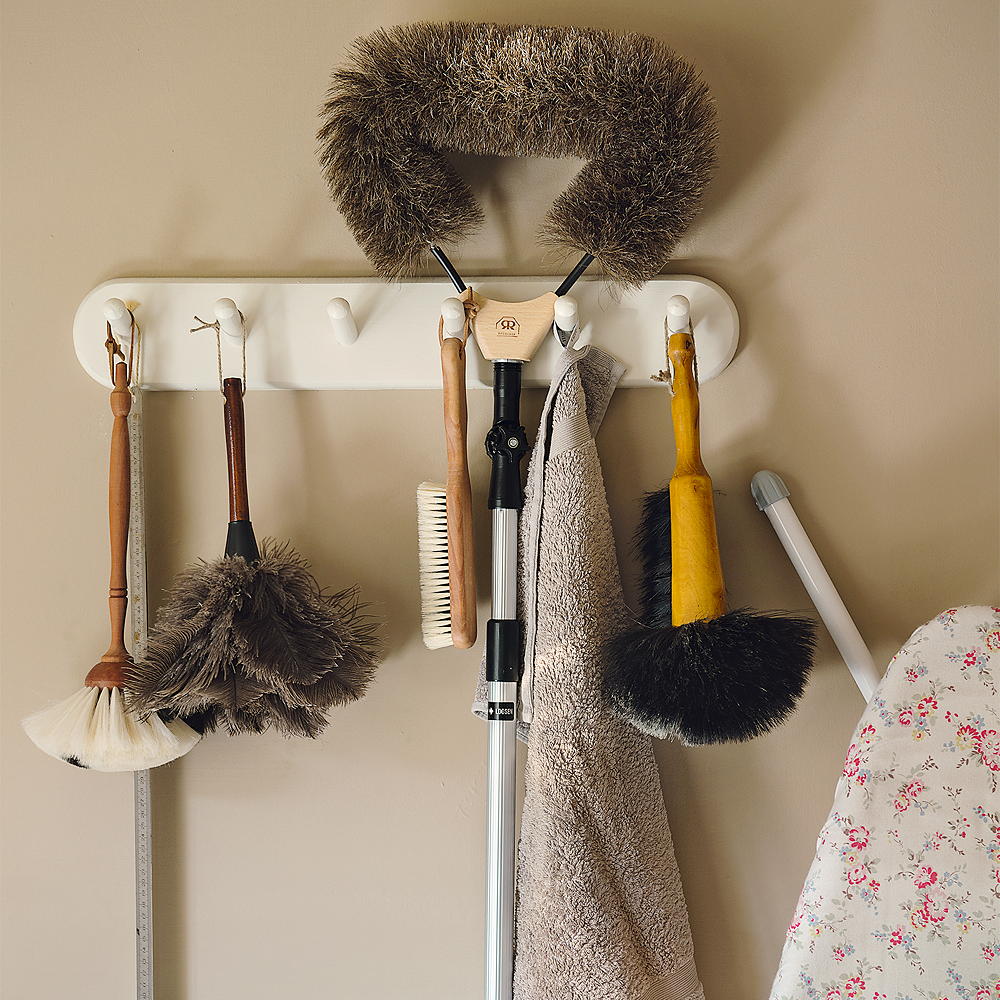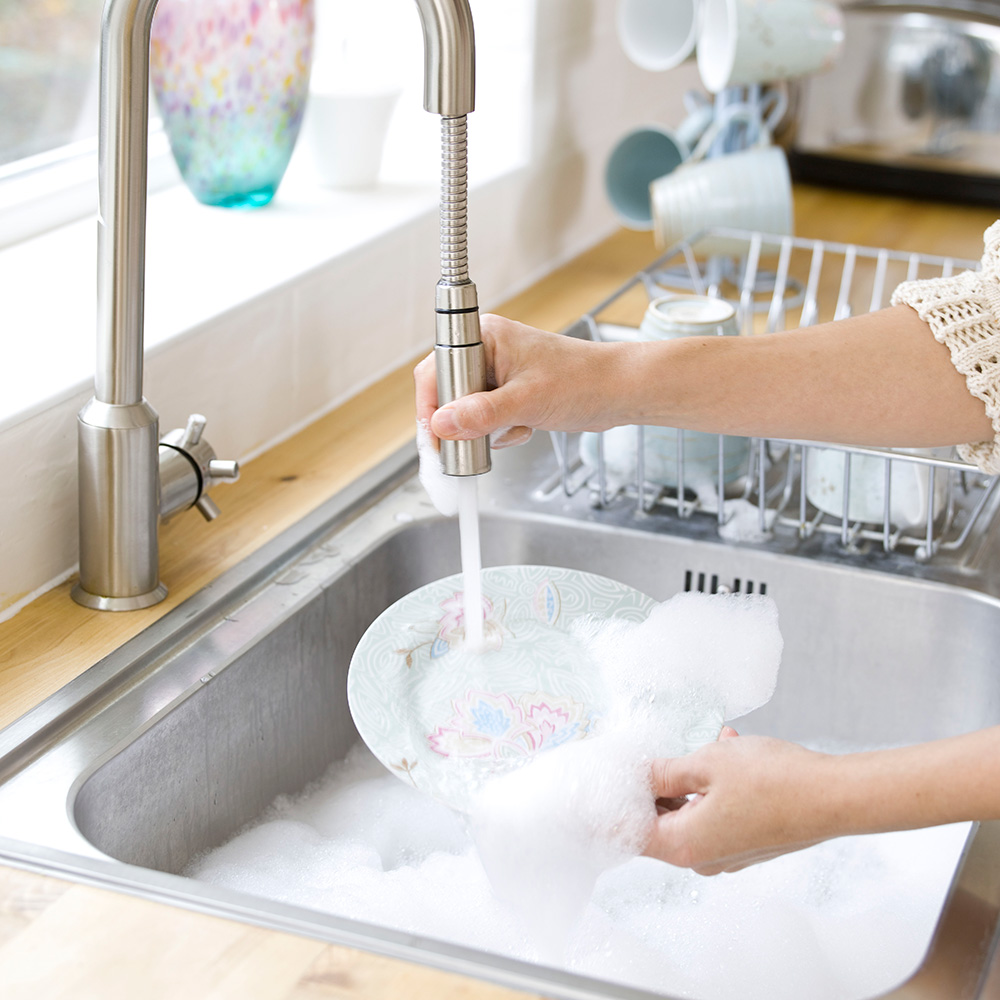Mrs Hinch and her fans are making this surprising cleaning mistake, according to a cleaning expert
Don't fall into the trap of this cleaning faux pas

We've made it through the 512 days of January! And since February goes by in the blink of an eye, it'll soon be time to put on the Marigolds for a good old spring clean.
Related: Cleaning fans are calling this easy hack to make laundry smell fresh better than tumble dryer sheets
While many of us enjoy cleaning, it's not something you want to drag out for longer than entirely necessary. Even if you are a dedicated Hincher, there are a few cleaning mistakes you could be making that could be messing up your spring cleaning session.
Are you making these cleaning mistakes?

Cleaning expert Heather Barrington has revealed some common errors, including this one that even Mrs Hinch and her millions of followers make:
Spraying cleaning solutions directly onto surfaces
Whether it's Pine, Zoflora or Elbow Grease, when you spray cleaning solutions directly onto surfaces, furniture and glass, it creates a residue and build-up that’s harder to remove. This results in streaky windows and greasy surfaces that dust will stick to.
Spraying cleaning solutions directly onto surfaces also releases chemicals into the air which irritates people with asthma or allergies. So, spray your cleaning solution directly onto your microfibre cleaning cloth before wiping down the surfaces to avoid being driven mad by streaky glass.

Using washing up liquid on your chopping boards
Washing up liquid with hot water doesn’t clean chopping boards as well as you might think. This is because soap can’t penetrate the cold chopping board, meaning it doesn’t get cleaned thoroughly.
Sign up to our newsletter for style inspiration, real homes, project and garden advice and shopping know-how
If you wash your boards between chopping different kinds of foods, there are probably still harmful bacteria on it. Even if you mix the soap with steaming hot water, it’s not enough.
Avoid any cross-contamination by soaking your cutting boards into bleach solution after each use. This will kill most bacteria and will prevent it transferring to any other foods you prepare.

Cleaning stainless steel in circular motions
Cleaning steel is a hard task and sometimes no matter how hard you try, you aren’t left with a sparkly finish. If you wipe a stainless-steel surface using circular motions, the marks may become more obvious once the solution dries.
Work out the direction of the ‘grain’ in the stainless steel and follow that while cleaning – it will make all the difference.
Not pre-soaking dirty dishes
Potentially a controversial one, but throwing dishes straight in the dishwasher or attacking them with a sponge without a gentle soak beforehand is a mistake many make. Why? Because you spend more time scrubbing off food, and it's less hygienic.
Even if your dishes are going in the dishwasher, it's a good idea to remove the food debris so it doesn't make your dishwasher dirty or develop a nasty odour.
Soaking your dishes first will ensure they are free of food-borne illness-causing bacteria. You can kill the bacteria by submerging your dishes for 30 seconds in hot water that’s at least 75°C.
Allow your dishes to air dry where possible as a cloth or towel can spread germs.

Using the same cloth around the house
The saying goes, pink for sink, blue for loo, and Hinchers know to use a different microfibre cleaning cloth for each area of the home to avoid cross-contamination.
As even with your favourite Zoflora spritzed on, using the same cloth in multiple spots around the house results in spreading grime around from the previous surface. None of us wants the germs from our kitchen counters getting onto the living room coffee table.
Not wiping down the sink
After using your sink, you might quickly rinse with water before walking away, but this can be unhygienic. Sinks rapidly grow germs as food from soaking cutlery and pans can get left behind.
If you think about how much dirt and food passes by daily, you will realise the care your sink needs. For an intense clean, mix neat bleach with a cup of water and pour into the sink. Leave the bleach to work for 30 minutes before giving the sink a rinse with warm water.

A deep clean and declutter is something we often put off, unsure of where to begin and fearful that it will snowball into a never-ending task. But, it can be therapeutic and we feel so much better when it's done.

Millie Hurst was Senior Content Editor at Ideal Home from 2020-2022, and is now Section Editor at Homes & Gardens. Before stepping into the world of interiors, she worked as a Senior SEO Editor for News UK in both London and New York. You can usually find her looking up trending terms and finding real-life budget makeovers our readers love. Millie came up with the website's daily dupes article which gives readers ways to curate a stylish home for less.